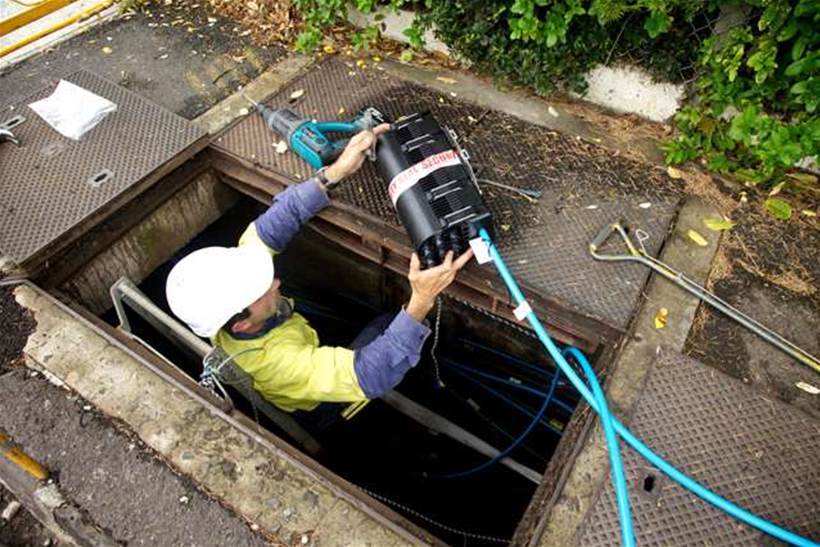A major revamp of the way contracts for the NBN rollout are awarded has been met with cautious optimism for a turnaround in the pace of the project.
NBN will now farm out rollout work in six-month parcels.
Contractors will have to prove they met speed, safety and quality performance metrics in that six-month period in order to be eligible for the next parcel of work.
If they underperform, the next six-month parcel will be offered to other contractors.
The new contract terms “represent a marked departure from the old commercial model which guaranteed large volumes of work to suppliers in specified states and regions regardless of performance but also placed upon them a high administrative burden and no competition for that work,” according to NBN chief Bill Morrow.
“The new contracts offer flexible volume commitments, competition between delivery partners, and pricing based on outcomes rather than inputs,” he said.
“What this means is that the performance of our construction partners, the quality of their work and their adherence to safe work practices will determine how much additional work they will receive.”
Five contractors are now covered by the new contracts: Downer, Transfield, Visionstream, Fulton Hogan and WBHO.
Together they will bring fibre to the node, building or premises connections to around four million homes and businesses over the next five years.
“Contracts with additional suppliers are also being negotiated and nearing conclusion,” NBN said.
The Communications, Electrical and Plumbing Union – which represents telecommunications workers – “cautiously welcomed” the “long overdue” changes.
Its national secretary Allen Hicks noted that “previous contracting inadequacies had already caused significant harm” to the network project.
“We have been calling for a change to the model after two years of significant failures in the delivery model,” he said.
Hicks said contracts to date had “slowed the rate at which residents are being connected to the NBN.”
However, the pace of the rollout has increased in recent times under Morrow’s leadership. The company reported adding an average 12,300 premises a week to its footprint in the most recent quarter, up from 7000 a week the same time last year.
"I think that in general the early problems have been largely resolved and the rollout from a construction point of view has gone well in recent months," telecommunications analyst Paul Budde told Information Age.
"It looks the new [contract] arrangements are basically a confirmation of this.
"But it will be interesting to see what happens when we move to the multi-technology mix [NBN] rollout as there will be a range of new uncertainties."
Telstra's absence
Downer predicts it will take $100 million and bring the NBN to 144,000 premises in the first year of the new contract, which begins July 1.
Transfield said it could earn up to $140 million in the first year of the new arrangement, and welcomed the simple and clear new commercial structure as “a major step forward.”
Visionstream expected the first year value to “exceed $270 million”.
One notable absentee from the new list of construction contractors is Telstra, which submitted a “non-conforming proposal with alternative financial and contractual terms” – which NBN rejected.
Morrow told the Australian Financial Review that construction at this scale was “not [Telstra’s] strong suit”.
Telstra has been doing some fibre-to-the-node construction work with NBN but on a limited scale – consisting of 1000 nodes at a handful of east coast pilot sites.
"Low impact"
The Government is hoping to make it even easier for the rollout to progress faster by relaxing rules in Schedule 3 of the Telecommunications Act.
These rules enable carriers to deploy "low impact" infrastructure - such as mobile antennas - without having to satisfy state and local planning laws.
Low impact is defined as equipment or cabling that is "considered to be of low visual impact and unlikely to cause significant disruption to the community during installation or operation."
The Government hopes to enable NBN and its contractors to roll out thicker overhead cables and attach larger pieces of equipment to buildings by invoking these laws, reducing red tape around the rollout.
Comment on the proposal closes on 10 July.










